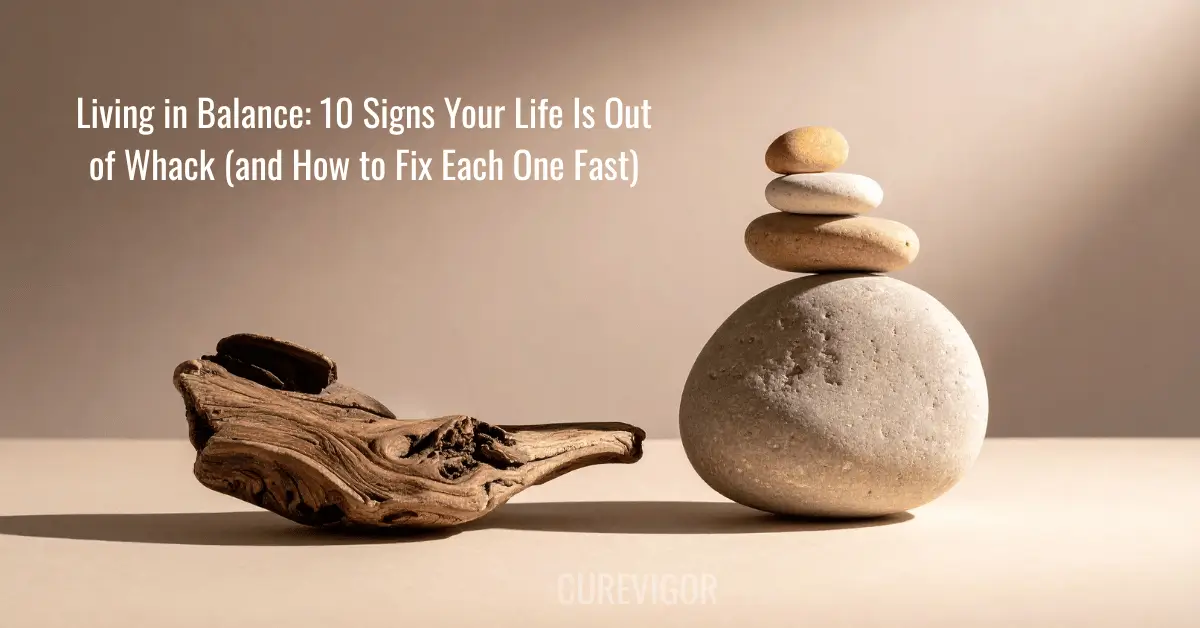Feeling off track? Master the art of living in balance. Uncover 10 clear signs your life is unbalanced and proven methods to regain energy, clarity, and control.
Thank you for reading this post, don't forget to subscribe!Living in balance isn’t perfection—it’s harmony. When your well-being aligns, life flows with ease and joy. But in today’s world, it’s easy to lose equilibrium without noticing.
Are you really living in balance? Or are you running on autopilot, trying to meet everyone’s expectations while silently burning out?
Why Is Living in Balance Important
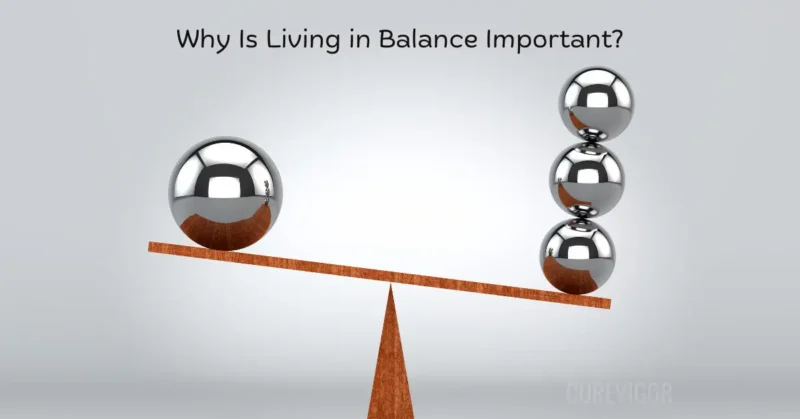
Living in balance is essential because it touches every part of your life—your health, happiness, relationships, and productivity. When you’re balanced, you make better decisions, handle challenges calmly, and enjoy life more fully.
Your energy flows smoothly because your body and mind work together instead of against each other.
A balanced life helps reduce stress, prevent burnout, and improve emotional stability. You sleep better, think clearly, and respond to situations with patience rather than panic. It also strengthens your relationships because you’re more present and emotionally available.
Most importantly, living in balance allows you to grow without losing yourself. You can chase goals while still caring for your well-being. It’s not about perfection—it’s about maintaining harmony between effort and ease, giving and receiving, doing and being.
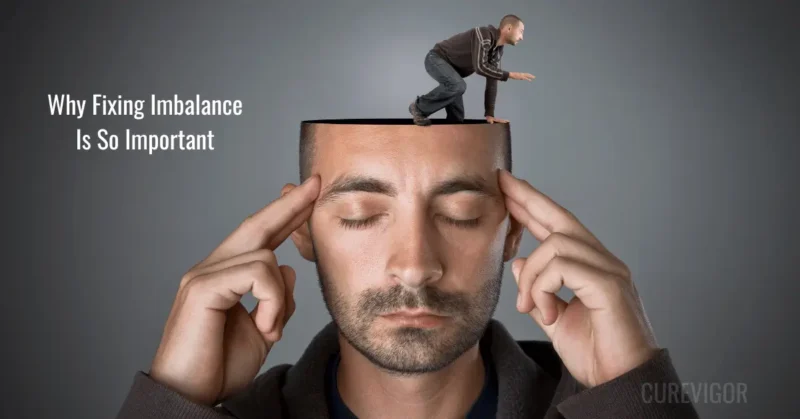
Why Fixing Imbalance Is So Important
When your life falls out of balance, everything starts to feel heavy. You may notice exhaustion, mood swings, or a sense of emptiness that no achievement can fill.
This imbalance eventually impacts not just your physical health but also your mental and emotional well-being. Chronic stress, poor sleep, and constant pressure weaken your immune system and drain motivation.
Fixing those imbalances is not optional—it’s vital for long-term happiness and success. Restoring balance helps you regain focus, boost creativity, and reconnect with your true priorities.
It gives you clarity about what truly matters and enables you to let go of what doesn’t.
When you fix what’s out of sync, you create space for joy, peace, and growth to return. You start feeling energized rather than exhausted, centered rather than scattered.
Simply put, finding and maintaining balance is the foundation for a healthier, more fulfilling life—because without it, even the best achievements can feel empty.
10 Signs Your Life Is Out of Whack (and How to Fix Each One Fast)
Let’s explore seven powerful signs your life may be out of sync—and practical, easy-to-apply ways to bring everything back into balance.
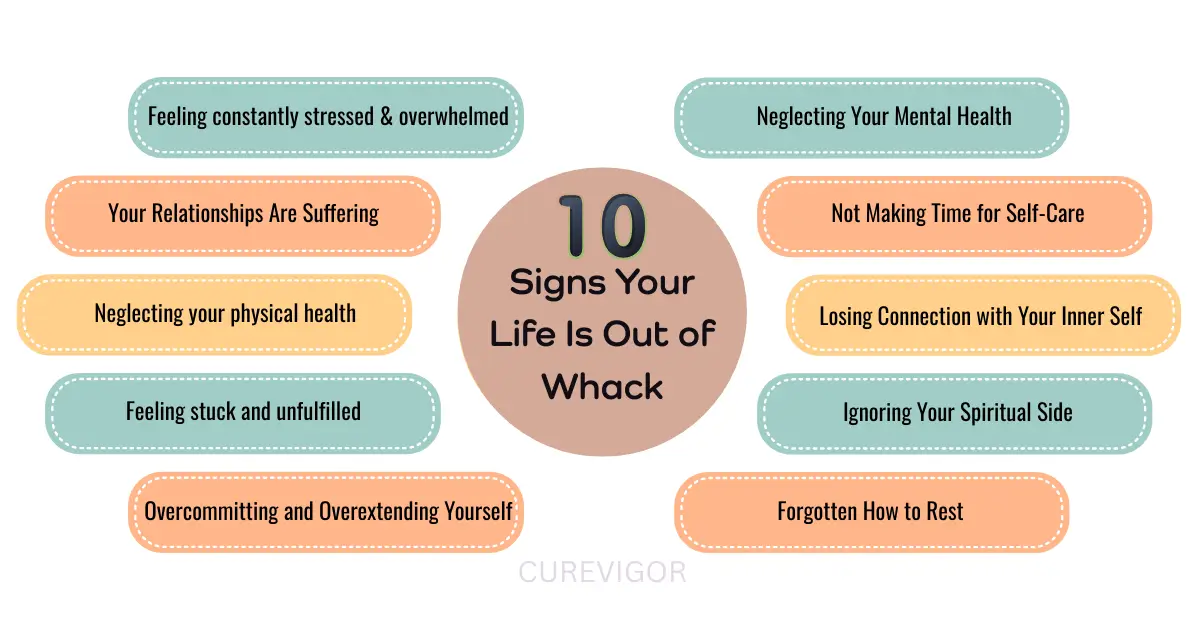
1. Feeling constantly stressed and overwhelmed
Signs
You wake up already feeling behind. Your mind races at night, and sleep feels like a luxury. Small problems feel huge, and you’re constantly rushing from one thing to the next.
Stress becomes your default mode—and that’s a red flag that you’re no longer living in balance.
Fix
Start by identifying your biggest stress triggers. Does it work? Family responsibilities? Lack of downtime?
Once you pinpoint them, you can take back control.
Here’s how:
- Set clear priorities: Not everything deserves your energy. Focus on what truly matters.
- Practice deep breathing or meditation: Just 10 minutes a day can reset your nervous system.
- Create a “no phone” time: Disconnect to recharge mentally.
- Schedule joy: Treat joy as a daily necessity, not a luxury.
Remember, balance begins with boundaries.
2. Your Relationships Are Suffering
Signs
You can’t remember the last real conversation with a friend. You cancel plans, miss family events, and feel distant.
When relationships start to feel like chores, it’s a sign you’re drifting away from balance.
Fix
Relationships thrive on attention and intention. To rebuild the connection:
- Schedule time for loved ones: Add family time to your calendar the same way you would for business appointments.
- Be present: Put away your phone when you’re with people you care about.
- Communicate honestly: Share what’s stressing you out instead of bottling it up.
- Set boundaries: Balance doesn’t mean saying “yes” to everyone—it means knowing when to say “no.”
Healthy relationships don’t just add joy; they’re essential for emotional balance.
3. Neglecting your physical health
Signs
Skipping meals, late-night snacking, or constantly feeling drained? Maybe you’re too tired to exercise or think, “I’ll start next week.”
Poor physical health often signals you’re out of alignment. The body mirrors what the mind feels.
Fix
You don’t need a perfect routine—just consistent small steps.
- Eat real food: Focus on whole foods and hydrate often.
- Move your body daily: Walk, stretch, or dance—it all counts.
- Sleep 7–8 hours nightly: Recovery is as important as productivity.
- Listen to your body: Fatigue and aches are messages, not inconveniences.
When your body feels strong, your mind follows. Physical health is the foundation of living in balance.
4. Feeling Stuck and Unfulfilled
Signs
You’ve stopped feeling excited about your goals. Every day feels the same. You’re surviving, not thriving.
This emotional stagnation often occurs when your actions don’t align with your values.
Fix
To reignite your sense of purpose:
- Reflect on what matters most: What activities make you feel alive?
- Explore new challenges: Take a class, start a side project, or travel.
- Seek guidance: A mentor or therapist can help uncover blind spots.
- Celebrate progress: Recognize small wins to rebuild motivation.
Growth brings movement—and movement brings balance.
5. Overcommitting and Overextending Yourself
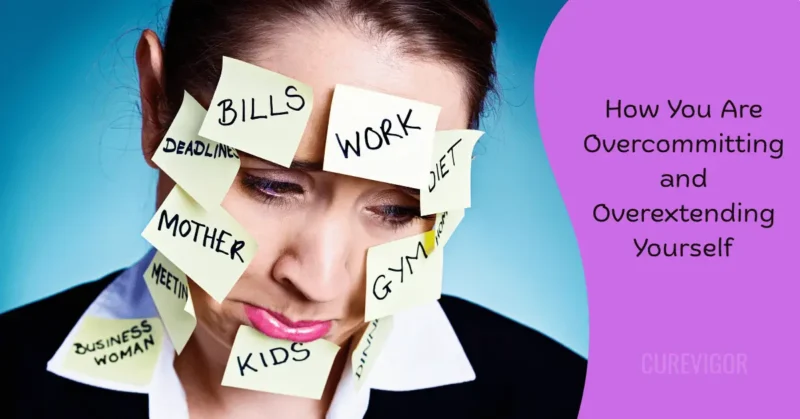
Signs
Your calendar is full, but your energy is empty. You say “yes” to everything out of guilt or fear of missing out.
If you’re stretched too thin, balance is impossible.
Fix
It’s time to declutter your commitments.
- Learn to say no gracefully: Protect your time without guilt.
- Delegate: You don’t have to do everything yourself.
- Focus on what truly matters: More isn’t better; better is better.
- Create space for rest: Doing less can help you achieve more with clarity.
Saying “no” to others is often saying “yes” to yourself—and that’s the heart of living in balance.
6. Neglecting Your Mental Health
Signs
You’re anxious, easily irritated, or emotionally numb. You may feel detached from life or constantly mentally and emotionally exhausted.
Ignoring your mental health can quietly erode your balance from the inside out.
Fix
Your mind deserves as much care as your body.
- Talk to someone: Therapy isn’t weakness—it’s strength.
- Practice mindfulness: Stay present and stop reliving past stress.
- Limit negativity: Reduce news and social media that drain you.
- Be kind to yourself: Replace self-criticism with compassion.
Mental clarity restores emotional peace—and peace restores balance.
7. Not Making Time for Self-Care
Signs
You can’t remember the last time you did something just for yourself. You rush through your days without pause, always putting everyone else first.
Neglecting self-care is one of the clearest signs of imbalance.
Fix
Self-care isn’t selfish—it’s survival.
- Schedule it: Treat it like an important appointment.
- Do what recharges you: Read, walk in nature, meditate, or paint.
- Nourish your soul: Embrace time with positive people and experiences.
- Unplug regularly: Silence helps you reconnect with yourself.
When you take care of yourself, everything else naturally falls into place.
8. Losing Connection with Your Inner Self
Signs
You no longer know what you truly want. You make choices based on others’ expectations instead of your own desires.
This inner disconnection creates a sense of emptiness, no matter how “successful” life looks.
Fix
Rebuilding inner balance means reconnecting with your values and intuition.
- Journal daily: Writing clarifies your thoughts and feelings.
- Spend quiet time alone: Solitude helps you hear your inner voice.
- Reflect on your “why”: Align daily actions with your purpose.
Inner peace is the true measure of living in balance.
9. Ignoring Your Spiritual Side
Signs
You feel lost, disconnected, or like something’s missing—even when life seems fine on the surface.
Ignoring spiritual needs, whether religious or not, can make life feel hollow.
Fix
- Connect with nature: It’s grounding and healing.
- Practice gratitude: Write down three things you’re grateful for daily.
- Meditate or pray: Whatever fits your beliefs, make time for reflection.
Spiritual nourishment keeps your inner world balanced, even when the outer world feels chaotic.
10. Forgotten How to Rest
Signs
You equate rest with laziness. You work through weekends, skip vacations, and feel guilty for slowing down.
This mindset leads straight to burnout.
Fix
Rest is not a reward—it’s a requirement.
- Schedule downtime: Treat rest as productive recovery.
- Disconnect daily: Step away from screens for at least an hour before bed.
- Honor your limits: Rest before exhaustion, not after.
When you rest, you recharge your energy—and your balance.
How to Start Living in Balance Today
Living in balance doesn’t happen overnight. It’s a daily choice. Start with small, mindful actions that bring you back to yourself.
Here’s a simple roadmap:
| Step | Action | Why It Works |
| 1 | Identify your biggest stressors | Awareness is the first step to change. |
| 2 | Create daily rituals | Consistency builds stability. |
| 3 | Nurture relationships | Connection fuels happiness. |
| 4 | Prioritize health | A strong body supports a strong mind. |
| 5 | Practice gratitude | Shifts focus from lack to abundance. |
Balance is not something you find—it’s something you create.
FAQs About Living in Balance
Q. What does living in balance really mean?
Living in balance means creating harmony between your mind, body, emotions, and daily responsibilities. It’s about managing stress while still making time for rest, relationships, and joy.
When you’re living in balance, you feel grounded, focused, and fulfilled—not stretched too thin. It doesn’t mean every day is perfect; rather, it means you know how to adjust when life gets off track.
True balance lets you live with purpose and peace, rather than pressure and chaos.
Q. How can work-life balance improve mental health?
A healthy work-life balance protects your mind from burnout and chronic stress. When you dedicate time to personal joy, relationships, and rest, your brain gets the recovery it needs to function clearly.
It lowers anxiety, boosts mood, and improves focus—helping you feel more motivated both at work and home. Setting boundaries around work hours also reinforces self-worth and emotional stability.
Simply put, work-life balance enables you to perform better and feel better.
Q. What are the five signs of poor mental well-being?
Poor mental well-being often manifests in subtle yet persistent ways. You might feel constantly tired, struggle to concentrate, or lose interest in things you once enjoyed.
Changes in sleep or appetite, or unexplained sadness or irritability, can also signal emotional imbalance. Additionally, physical symptoms like stress or headaches may manifest.
It is critical to take a break, get help, and focus on reestablishing equilibrium in your daily schedule if you notice these patterns persisting for weeks.
Q. What symptoms should you never ignore?
Never ignore ongoing fatigue, frequent mood swings, or a loss of motivation that disrupts your daily life. Physical signs like rapid heartbeat, shortness of breath, or dizziness can also indicate that stress or anxiety is taking a toll.
A mental health professional should always be contacted right away if there are persistent feelings of hopelessness or suicidal thoughts.
Your body and mind send warning signals for a reason—listening early can prevent deeper burnout or health issues later.
Q. How to restore balance in life?
Restoring balance starts with awareness—recognizing what’s causing stress or exhaustion. Begin by simplifying your schedule, setting healthy boundaries, and making self-care non-negotiable. Prioritize sleep, exercise, and nutrition to rebuild energy naturally.
Spend time on enjoyable hobbies and reestablish relationships with loved ones. Above all, allow yourself to relax and rejuvenate. Doing what really matters and letting go of the rest is what balance is all about.
Q. How can I maintain balance long-term?
Maintaining balance long-term requires consistent reflection and small, sustainable habits. Regularly check in with yourself—ask if your actions align with your priorities and values.
Keep routines flexible so you can adjust as life changes. Schedule downtime just as you do meetings, and fiercely protect your boundaries. Stay mindful through meditation or journaling to stay centered.
Over time, these small choices create a steady rhythm that keeps you living in balance—not just occasionally, but every day.
Final Thoughts: Start Living in Balance Today
Living in balance isn’t a destination—it’s a daily practice of choosing what truly nourishes your mind, body, and soul.
Every time you pause to breathe, rest, or realign your priorities, you take one step closer to inner peace and lasting fulfillment.
Remember, balance doesn’t mean doing everything; it means doing what matters most with clarity and purpose. Life will always have challenges, but when you’re centered, you face them with strength instead of stress.
Start small, stay consistent, and let each balanced choice guide you toward a life that feels calm, joyful, and deeply your own.

Read more Health and Balance articles.
You might like:

